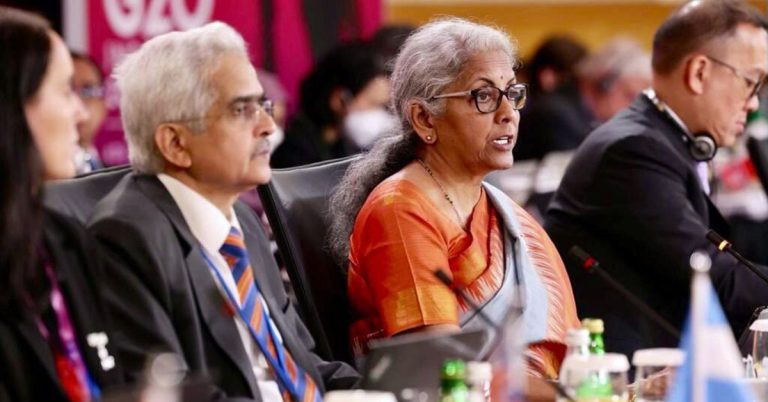India has not made any changes to the controversial Tax Deduction at Source (TDS) policy affecting the cryptocurrency industry.
The country's Finance Minister Nirmala Sitharaman unveiled the budget in Parliament on Thursday as usual. Expectations were low for a change to the strict taxes on cryptocurrency transactions, which include a 30% tax on profits and a 1% TDS tax on all transactions. However, there was a glimmer of hope due to the efforts made by the local cryptocurrency industry and a study conducted by a think tank that strongly pushed for a reduction in TDS.
Overall, expectations for this budget were lower for the financial sector as India heads to hold general elections in the next two months. Sitharaman announced no changes in taxes – either direct or indirect.
In an election year, the Ministry of Finance does not usually present a full budget, but rather a temporary budget to finance its expenditures for a short period. The full budget is usually expected to be released in July after the results are in. Prime Minister Narendra Modi and his Bharatiya Janta Party are expected to return to power, according to opinion polls.
The cryptocurrency industry in India has been urging the government to reduce the TDS ratio by 1% to 0.01% since it was first announced two years ago. Indian cryptocurrency exchanges have been in survival mode, trying to expand their runways in response to the 1% TDS.
Dilip Chinoy, president of the Bharat Web3 Association, the political body that advocates for the Web3 sector in India, said that since this is an interim budget, we did not expect any major movement but are “eagerly anticipating the announcement of the changes after the elections.”
“High TDS rates and income taxes continue to be hurdles that have pushed both creators and consumers to leave India,” Chinoy said. “This migration has significantly impacted Web3's prospects in India. We have and will continue to highlight these concerns to key stakeholders.”
Taxes imposed by the Indian government have prompted as many as five million cryptocurrency traders to move their transactions offshore, costing the government $420 million in potential revenue since its introduction in July 2022, according to a study by the Esya Center.
“Digital public infrastructure and the Prime Minister’s aspirations [innovation] Rajagopal Menon, vice president of cryptocurrency exchange WazirX, said India would benefit from incorporating provisions for long-term financing for domestic cryptocurrency projects given that India is at a pivotal stage in the cryptocurrency revolution. “We expect these developments to take into account the government's agenda alongside our existing requests to reduce TDS rates to 0.01% and offset traders' losses.
Update (February 1, 2024 at 9:00 p.m.): Adds a quote from Dilip Chinoy.

